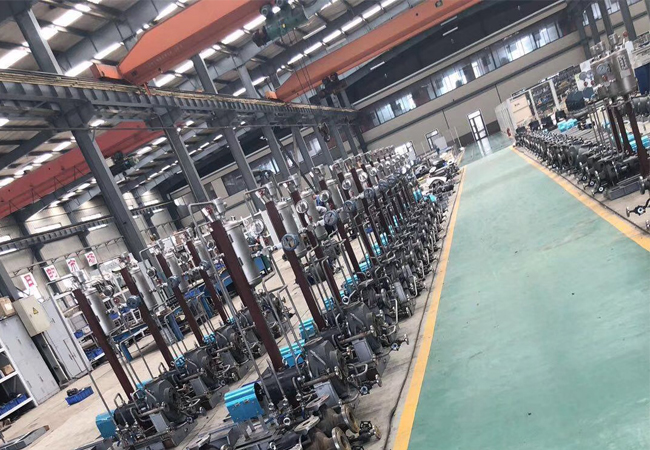English
- Afrikaans
- Albanian
- Amharic
- Arabic
- Armenian
- Azerbaijani
- Basque
- Belarusian
- Bengali
- Bosnian
- Bulgarian
- Catalan
- Cebuano
- Corsican
- Croatian
- Czech
- Danish
- Dutch
- English
- Esperanto
- Estonian
- Finnish
- French
- Frisian
- Galician
- Georgian
- German
- Greek
- Gujarati
- Haitian Creole
- hausa
- hawaiian
- Hebrew
- Hindi
- Miao
- Hungarian
- Icelandic
- igbo
- Indonesian
- irish
- Italian
- Japanese
- Javanese
- Kannada
- kazakh
- Khmer
- Rwandese
- Korean
- Kurdish
- Kyrgyz
- Lao
- Latin
- Latvian
- Lithuanian
- Luxembourgish
- Macedonian
- Malgashi
- Malay
- Malayalam
- Maltese
- Maori
- Marathi
- Mongolian
- Myanmar
- Nepali
- Norwegian
- Norwegian
- Occitan
- Pashto
- Persian
- Polish
- Portuguese
- Punjabi
- Romanian
- Russian
- Samoan
- Scottish Gaelic
- Serbian
- Sesotho
- Shona
- Sindhi
- Sinhala
- Slovak
- Slovenian
- Somali
- Spanish
- Sundanese
- Swahili
- Swedish
- Tagalog
- Tajik
- Tamil
- Tatar
- Telugu
- Thai
- Turkish
- Turkmen
- Ukrainian
- Urdu
- Uighur
- Uzbek
- Vietnamese
- Welsh
- Bantu
- Yiddish
- Yoruba
- Zulu
Telephone: +86 13120555503
Email: frank@cypump.com
Dec . 27, 2024 03:42 Back to list
'slurry transfer pump efficient and reliable fluid handling ...'
Efficient and Reliable Fluid Handling with Slurry Transfer Pumps
In various industrial applications, the efficient and reliable transfer of fluids, especially slurries, is a critical component of operational success. Slurry transfer pumps are specifically designed for moving mixtures of liquids and solids, providing a solution that enhances productivity while ensuring minimal downtime. Understanding the technology, benefits, and applications of these pumps is essential for industries reliant on fluid handling.
What Is a Slurry Transfer Pump?
A slurry transfer pump is engineered to handle the complex challenges associated with transporting viscous mixtures, often containing solid particles. Unlike standard pumps, these specialized devices are built with rugged components that can withstand abrasive materials and high solid concentrations, ensuring efficient performance over extended periods. They come in various types, including centrifugal, positive displacement, and submersible pumps, each designed for specific slurry characteristics and operational requirements.
Efficiency in Slurry Handling
Efficiency is paramount when it comes to slurry transfer. The right pump can significantly reduce energy consumption while maximizing throughput. For instance, centrifugal slurry pumps are known for their ability to transport large volumes of fluid with lower energy requirements compared to other pump types. They utilize rotational energy to move the slurry, making them ideal for applications that involve high flow rates and lower viscosity.
Moreover, the design of slurry transfer pumps—including impeller design, suction capabilities, and wear resistance—plays a crucial role in enhancing efficiency. A well-designed pump minimizes energy loss and provides a steady flow, ensuring that processes remain uninterrupted. Regular maintenance and timely inspections further contribute to efficiency by preventing wear and tear, thereby prolonging the lifespan of the pump.
Reliability in Operations
'slurry transfer pump efficient and reliable fluid handling ...'

Reliability is another key consideration for industries that rely on slurry handling. A failure in the pumping system can lead to significant downtime, lost productivity, and increased operational costs. Slurry transfer pumps are built to endure harsh conditions and handle challenging materials, ensuring consistent performance.
One aspect of reliability is the ability to operate under varying pressure and temperature conditions without compromising functionality. Many modern slurry pumps are equipped with advanced monitoring systems that provide real-time data on performance parameters. This allows operators to detect potential issues early, reducing the risk of unexpected failures.
Additionally, the use of high-quality materials in the construction of slurry pumps—such as stainless steel, rubber, and specialized alloys—ensures they can withstand abrasive and corrosive slurries. This durability is vital in industries such as mining, construction, and wastewater treatment, where pumps are often subjected to demanding conditions.
Applications of Slurry Transfer Pumps
Slurry transfer pumps find applications across a range of industries. In mining, they are crucial for moving mineral slurries from one processing stage to another. The construction industry utilizes them to transfer cement slurries and other viscous mixtures. Additionally, in wastewater treatment facilities, slurry pumps are essential for moving sludge and other thick materials throughout the treatment process.
The versatility of these pumps also extends to the agricultural sector, where they are used to manage slurry from livestock operations, enabling efficient waste management and fertilization processes.
Conclusion
In conclusion, slurry transfer pumps play an indispensable role in the efficient and reliable handling of fluids in various industries. Their ability to manage challenging materials with minimal energy consumption and maximum reliability makes them a vital component in any operation that requires the movement of slurries. As technology continues to advance, the design and functionality of these pumps are expected to improve, further enhancing their efficiency and reliability. For industries engaged in fluid handling, investing in high-quality slurry transfer pumps is not just a choice; it is a necessity for maintaining productivity and operational excellence.
-
ISG Series Vertical Pipeline Pump - Chi Yuan Pumps Co., LTD.|High Efficiency, Energy Saving, Low Noise
NewsJul.30,2025
-
ISG Series Vertical Pipeline Pump- Chi Yuan Pumps|High Efficiency&Low Noise
NewsJul.30,2025
-
ISG Series Vertical Pipeline Pump-Chi Yuan Pumps Co., LTD.|High Efficiency&Energy Conservation
NewsJul.30,2025
-
ISG Series Vertical Pipeline Pump - Chi Yuan Pumps Co., LTD.|Advanced Hydraulic Design&Energy-Efficient Solutions
NewsJul.30,2025
-
ISG Series Vertical Pipeline Pump - Chi Yuan Pumps Co., LTD.
NewsJul.30,2025
-
ISG Series Vertical Pipeline Pump - Chi Yuan Pumps Co., LTD.|energy-efficient fluid handling&industrial durability
NewsJul.30,2025










